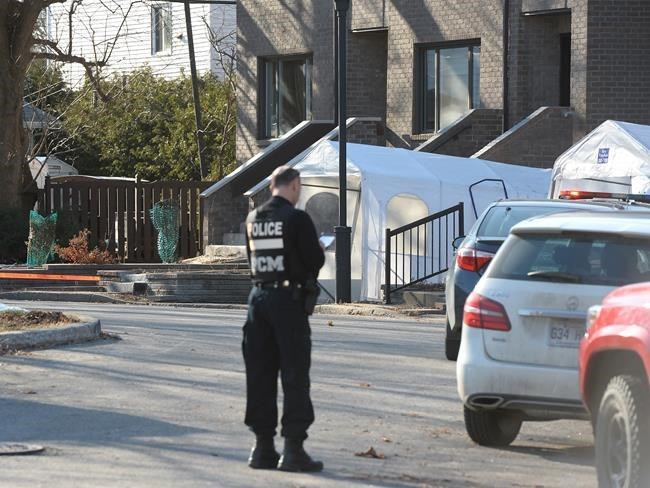MONTREAL — As Quebec police investigated the suicide of a man with prior arrests for domestic violence, authorities didn't immediately think to check on his wife and two children who were later found dead, a coroner's inquiry heard Monday.
The inquiry into the December 2019 killings of Dahia Khellaf, 42, and her sons, Adam, 4, and Aksil, 2, began Monday at the courthouse in Joliette, Que.
The three were strangled by Nabil Yssaad, 46, who took his own life by leaping from a hospital window in Joliette a day before the three bodies were found in their home, about 60 kilometres away in Montreal's east end.
The couple was separated at the time, and Khellaf was in the process of divorcing her husband.
In July 2022, coroner Alain Manseau wrote a report that was highly critical of prosecutors and a judge involved in the case, saying more could have been done to protect Khellaf and her children.
According to Manseau's report, Quebec prosecutors dropped four charges against Yssaad — including assaulting and threatening Khellaf — after he agreed to sign a peace bond five days before the killings. The bond barred Yssaad from contacting Khellaf or being within 100 metres of her house, but there was no court-ordered treatment for mental health issues.
Following the report, Quebec's chief coroner said new facts had come to light that required further investigation and an inquiry was ordered.
On Monday, coroner Andrée Kronström asked a Quebec provincial police investigator, Jonathan Perron, whether any concerns were raised about Khellaf and the children after Yssaad's body was found on Dec. 10, 2019. Kronström noted a number of red flags, including the fact Yssaad had driven to Joliette in his wife's vehicle and was subject to a court order prohibiting him from being in her presence.
After Yssaad's body was found, Perron said he asked Montreal police to go to the family's home to relay news of his death and confirm his identity, but the inquiry heard that the officers gave up when there was no answer at the Montreal home.
"When I heard from Montreal police … that there were no lights, no response, I started to have some doubts," Perron said. But he said officers are often dispatched to announce deaths and they had no indication of any threat in this case.
Perron said he asked Montreal police to return the next morning, Dec. 11, 2019, and break down the door if there was no response. The door was unlocked and they found the three bodies.
Asked if in retrospect, the welfare of the family should also be considered, the provincial police officer agreed. "We should assure the well-being of the immediate family," Perron said.
Later Monday, Gilles Mailhot, a Montreal police homicide detective, said there were no signs of struggle in the home and the bodies of the three victims were found seemingly staged in the same bed.
"For us, the investigation is clear, he was responsible for the deaths of (Khellaf) and the two children," Mailhot said.
Police weren't able to establish a probable chronology of the deaths or what Yssaad did afterwards, despite looking for security video, and cellphone and credit card activity.
The last time Khellaf and the children were seen alive was the evening of Dec. 9, 2019, when she left work and went to pick up the children at daycare. Yssaad had been seen around the family home by a neighbour that afternoon.
Earlier that day, Khellaf had told a work colleague that divorce proceedings were set to begin.
Mailhot said witnesses described Yssaad as exhibiting odd or unstable behaviour. He appeared to have no fixed address and police couldn't establish where he was living before the killings.
Khellaf was described as someone who was devoted to her kids and wanted the best for them, the detective said.
Earlier Monday, Perron testified that Yssaad had no ties to the Joliette hospital and was not a patient. Provincial police investigators believe he chose the building because it was the tallest in the vicinity.
The inquiry is scheduled to last two weeks.
This report by The Canadian Press was first published Oct. 23, 2023.
Sidhartha Banerjee, The Canadian Press
Note to readers: This is a corrected story. A previous version said Yssaad had died at a hospital south of Montreal.



